13 Tips for Saving Money on Your Electric Bill
Saving money on your electric bill can be a challenge, especially if you live in an area with high electricity rates or extreme temperatures. However, there are several things you can do to help lower your energy usage and save money on your electric bill. Whether it’s your air conditioning making the electricity super expensive or the unending hot showers that someone in your family enjoys, there are some ways to begin saving money on your electric bill. Here are some tips and tricks that can help you reduce your monthly electricity expenses.
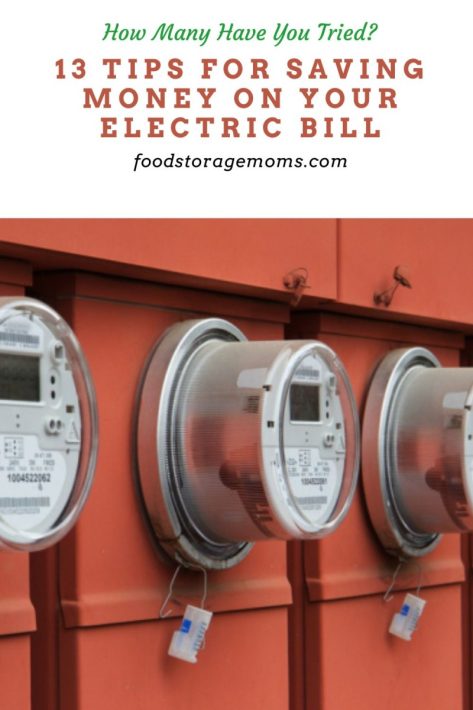
1. Conduct an Energy Audit
Before you start implementing energy-saving techniques, it’s important to understand where your electricity is being used. You can conduct your own home energy audit by using a variety of tools, including a watt meter, infrared thermometer, and air leak detector. In most areas, you can contact your power company and they will do an energy audit for you! This is probably one of the top ways for saving money on your electric bill because you learn where the electricity is being used and you can map out a plan to make some changes. What Happens When The Power Goes Out
2. Identify Energy Drains
Once you have your energy audit report, identify the areas of your home that are draining the most energy. This could include things like old appliances, drafty windows, or inefficient lighting. By focusing on these high-energy usage areas, you can make more targeted efforts to save energy and reduce your electric bill. Most of the time we don’t know what is causing our utility bills to skyrocket, so we have to become investigators to make sure we’re saving as much money as we can on energy costs. 15 Kitchen Appliances That Save Time and Money
3. Upgrade Your Home Appliances
Older appliances can be a major drain on your electricity usage. Replacing older appliances with newer, energy-efficient models can help you save a significant amount of energy and money. Look for appliances with the Energy Star label, which indicates that they meet certain energy efficiency standards set by the U.S. Environmental Protection Agency.
Many states will give a rebate or tax credit if you can prove you bought more energy-efficient appliances like a dishwasher, freezer, refrigerator, electric hot water heater, electric furnace, or air conditioning unit. Depending on where you live, the HVAC system is probably the most high energy user in the home
4. Choose Energy-Efficient Light Bulbs
Another easy way to save energy is to switch to energy-efficient light bulbs. Light-emitting diodes (LED) bulbs and CFL bulbs use significantly less energy than traditional incandescent light bulbs for the same amount of light and can last up to 25 times longer. While energy-efficient bulbs may cost more upfront, they pay off over time by using less energy and lasting longer. What to Use for Emergency Lighting
You should also consider using dimmer switches in rooms where you want to adjust the amount of light being emitted. You could turn the dimmers down in the evening as you watch TV or turn it up in the morning when in the bathroom getting ready for work.
5. Adjust Your Heating and Cooling Habits
Heating and cooling systems can account for a large portion of your energy usage. By adjusting your thermostat and making small changes to your heating and cooling habits, you can save money on your electric bill. This is probably the hardest part. Did you know they are now saying to keep your thermostat at 80 in the summer? That would be tough for me! These energy companies have the audacity to tell customers to keep their in-house temperatures that warm. However, sometimes it’s necessary to combat these utility companies and their high cooling costs.
Besides getting more efficient equipment, when you run them can make a difference. Some utilities will charge more during heavy demand periods, so try to use your equipment during off-peak hours whenever possible. Getting used to warmer summers and cooler winters can take some real effort. but there are some things that may help like opening some windows in the cool part of the night for fresh air during spring and summer. Closing curtains in the summer so sunlight doesn’t heat up rooms as much during the day.
During the winter, do the opposite and open those curtains so the sun gives your furnace a helping hand. Also, you can wear warmer clothes like long sleeves, light sweaters, a hat or cap, and put more blankets on your bed at night.
Also, be sure to change the air filter in both winter and summer. Consider using filters that allow more airflow since the more restrictive ones require more power to push the air through the filters.
6. Use a Programmable Thermostat
Using a programmable thermostat can help you save energy and money by automatically adjusting your home’s temperature based on your daily routine. You can set the thermostat to lower the temperature when you’re away from home and raise it when you return. Survival Tips that Could Save Your Life
7. Use Fans to Circulate Air
Ceiling fans and portable fans can be a great way to circulate air and keep your home comfortable without relying on your heating or cooling system. By using fans strategically, you can reduce your energy usage and save money on your electric bill. While fans don’t use as much energy as ac units, they can still use up a fair amount of energy. You can really get those big savings by not turning them on for long periods of time. However, it’s hard in the summer months when it’s super hot outside and you need to save all of the extra money you can. 101 Homesteading Skills We Need To Teach
8. Seal Air Leaks
Air leaks can account for a significant amount of your home’s energy loss. By sealing air leaks and reducing drafts with caulk and weather stripping and insulating your home, you can reduce your heat loss in winter and cool air in summer. These efforts reduce energy usage and make your home more comfortable. I hate to think that the electric company loves house leaks because that means you’re giving them even more money. Make sure things in your home are secure and don’t have leaks, a good place to start is with the door frames in your house. If you can invest in an energy-efficient model, then go for it.
9. Add Weather Stripping
Besides caulk, weatherstripping is an inexpensive way to seal air leaks around windows and doors. By adding weather stripping to drafty areas, you can prevent cold air from entering your home and reduce your energy usage. 15 Items to Stock Up On For Winter
10. Insulate Your Attic
Adding insulation to your attic can also help reduce energy loss and lower your electric bill. Insulation helps prevent heat from escaping through your roof and keeps your home more comfortable. 12 Ways Preppers Can Use Old Newspapers
Since heat rises, the attic insulation keeps the heated air from the furnace from escaping rooms as easily. Also, consider putting in an attic fan that turns on during extreme heat conditions and blows that hot air out of the attic area.
11. Reduce Water Usage
Reducing your water usage can also help lower your electric bill if you have an electric water heater. Heating water requires a significant amount of energy, so by reducing your hot water usage, you can save money on your electric bill and the gallons of water you are also billed for. When doing the laundry, either use the “small load” setting on your washing machine, so that water isn’t wasted and more energy is used than needed, or make sure you use the unit with a full load so you reduce the number of loads run. How to Use Rain Water at Home
That would also apply to the use of your dishwasher. You don’t want to overload the unit with too many dishes, but it makes sense to stretch the use of the machine until you can fill it with dishes, utensils, glasses, and other items. You may also want to consider letting the dishes “air dry” rather than using the heating element to dry them.
Some people love hot baths and long showers, but both use extra water and energy to heat the water. Try taking shorter showers so you can save on power and water usage.
12. Fix Leaky Faucets
Leaky faucets can waste a lot of water over time. You can save both water and energy by fixing leaky faucets and reducing your water usage. Sometimes energy consumption goes hand in hand, so it’s important to look at everything that you possibly can! 10 Watering Hacks for Your Garden
13. Install Low-Flow Showerheads
Low-flow showerheads use less water than traditional showerheads, which means less hot water needs to be heated. By installing low-flow showerheads, you can reduce your hot water usage and save money on your electric bill. If I really want to save money on my electricity bill, then I will just take cold showers, but that’s a big ask. While I don’t do this as often anymore, I’m not above saving money on energy use! If my power bill is high because of hot water, then this is a great way to solve this problem. Water Storage: How Much Do You Really Need?
More Tips for Saving Money on Electric
- 9 Ways to Stay Warm Without Electricity
- 10 Ways to Stay Cool Without Electricity
- When You Lose Electricity For Days
- Keeping Cool in the Summer Without Power
- What You Need In Your 72-Hour Kits Today
- Be sure to shut the doors on your fridge and freeze as soon as possible so the old air can’t escape.
- Use air fryers to cook more meals rather than turning on the electric oven.
- Toaster ovens also use less energy than your kitchen oven, so be creative in meal planning so you can use the smaller oven
- Use a power strip to turn off your electronic devices when not in use. Many devices, like computers and printers still draw some power even when they are in stand-by mode.
Final Word
Reducing your energy usage and saving money on your electric bill doesn’t have to be difficult. By conducting an energy audit, upgrading your home appliances, adjusting your heating and cooling habits, sealing air leaks, and reducing your water usage, you can make a significant impact on your monthly electric bill. Start small with one or two changes and work your way up as you become more energy-conscious. With some simple changes, you can lower your carbon footprint and save money at the same time. What are some ways in which you are saving money on your electric bill? May God Bless this World, Linda
Copyright Images: Electric Meters on Red Brick Wall Depositphotos_199718614_S, Power Meters Depositphotos_3741224_S

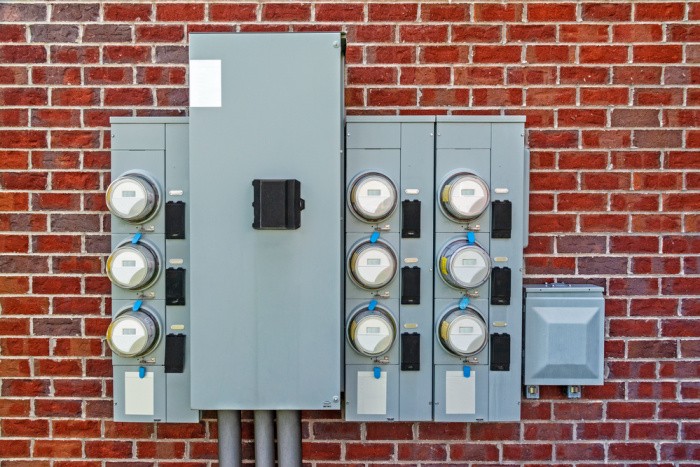




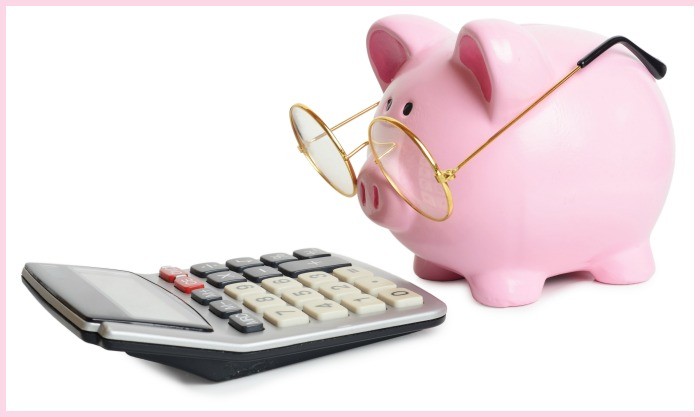
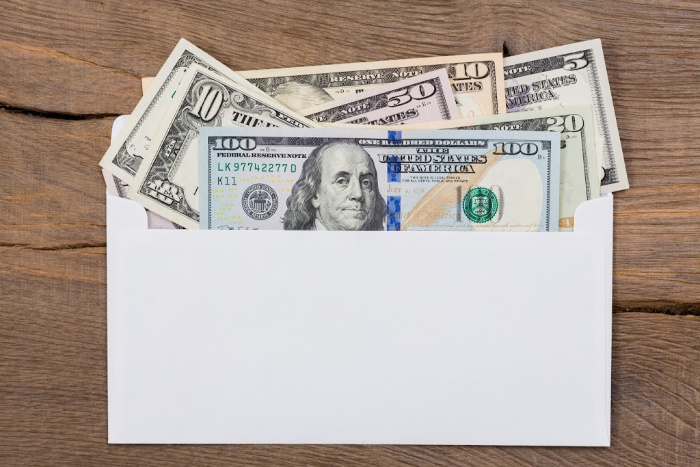
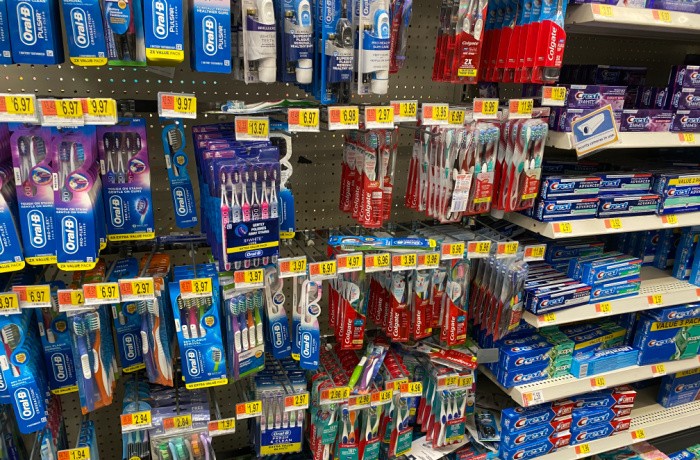













Put up a clothesline. I put up a retractable one on my deck and am hanging things outside, when the weather is appropriate. Those dryers cost a fortune to run.
Hi Janet, you are so right, hang up a clothesline! My home is still be being built and gas dryers and stoves are cheaper to run than electric but now they are hard to get. We have at least 8 more months before the house is done or at least we hope. I have always had a clothesline, and good clothespins are critical. Great reminder, thank you! Linda
Go on the BUDGET PLAN!! I have lived in my apartment for over 7 years now. The power bills are not outrageous but: in the summer, low low bills and in the winter high high bills!! So I contacted my power company and asked them about the budget plan. Now I pay a base amount that I can actually budget for rather than surprises in the mail! I have a fixed income so being able to actually budget for my electricity is very important to me. I hear others in my complex who are not on the budget plan complain about the high winter bills.
I am not saying, however, to disregard the advice given in this post. Do as many of those things as you can but also contact the power company about a budget plan.
We can’t do the budget plan in Florida because at the end of the year we end up with like a $2,000 bill that is so hard to pay!
Hi Jess, YIKES! They obviously miscalculated your average monthly budget. It’s my understanding that the power bills have doubled or tripled this last year. I wonder if Florida was one of the states!! That’s terrible! Linda
Ditto on the clothes line! Haven’t had a dryer here since I was a kid. Besides the outdoor clothes line, there are clotheslines strung in the attic (I think the same ones that were there when we moved in in 1957!)–so even if it’s raining or snowing, I can hang things up there. (And, remember the word “sublimation” in high school chemistry/physics? Yes, things will dry even when it’s below freezing. Might take a few days.)
Then there are the folding clothes racks that I can set up over the hot-air registers. Small items will dry well there, while adding some moisture to the dry winter air in the house.
There are a number of non-electric “appliances” that work just as well as their power versions, and cost nothing to run. Can opener, coffee grinder, egg-beater (at least for small jobs), whisk. Obviously the electric versions are handy if your hands don’t work well, but it’s worth considering.
To add to other heating/cooling… I have an outside/inside thermometer, so in summer, when I see the two temperatures have equaled in the evening, I open all the windows possible, to let in the cool night air–then reverse the process the next morning. Similarly, in summer I keep the attic windows open for cross-ventilation, since the attic is otherwise an oven.
I’ll also mention–if you get an electric bill that seems unusually high, call and ask about it. This past Feb., my bill went from about $100 to well over $500–and the usage graph indicated that our use had more than tripled, not only from the previous month but from last year at the same time (same house, same two people, same habits, no change of appliances). Eversource hemmed and hawed a good deal, finally had me (twice) go read them what the meter said, hemmed and hawed a little more and said I’d have to have an electrician see what was causing the drain… BUT with no further explanation, the next month (and three more!) were no charge as I had account credit–and the usage graph suddenly showed normal reading for that month! So something had gone wrong, and turns out it wasn’t us! If I hadn’t called and made a nuisance of myself, who knows how long I’d have been paying that amount…
Hi Rhonda, yikes, that’s a high jump! It’s a good thing you called! Thank goodness someone actually listened to you, some employees may not have been as helpful!! I love opening windows especially when its cooler outside than it is in the A/C home. We must take action if something doesn’t seem right! Linda
I read my meter several times each month–I don’t like surprises. The price now is .15 per kwh and when we moved here in 07 it was .09.
HI Judy, that’s almost doubled. YIKES! Linda
We bought a smart thermostat for the heat and air. Husband won’t put it in because a friend had one and would come home and it would be set to a different temp. He lives alone, so we was home one day and after a “heat advisory” was broadcast, the temp changed on the thermostat. It went up almost 10 degrees. He was more than mad, he called the electric company to try and figure out who was changing it. They admitted that since they had put it in and he got the rebate through them, they could, if need be, change it. I am calling boloney on it, but he swears it is still going on. And that is why we don’t have one. We can program ours, but not from our phones or computers.
Hi Beth, it’s happening in Southern Utah for sure. I refused to sign up for it. We kept kept getting letters from Washington City Power to sign up, no way was I giving them control over my electricity! Nope, no way. Linda
Oh my gosh, I thought it was my husband just not hearing things correctly. I agree, I don’t need that type of problem. We do a lot to keep from using excessive energy, we don’t need a babysitter for that.
Hi Beth, no we do not need a babysitter! LOL! We can turn own own thermostat! Lol! Linda
Hey, one more thing you should consider to save on your bills is leaving your air conditioner running at 72 degrees when you leave for work. It might seem more logical to turn it off completely, but no. Leaving your AC running at this temperature can help maintain a more consistent indoor temperature and avoid drastic fluctuations that may occur if you turn it off completely. In hot climates, the indoor temperature can rise significantly when the AC is turned off, and then the AC has to work harder and consume more energy to cool the house back down when you return.
Hi Polestar, I have told my hubby this for years, it takes a lot to bring the temperature back up. Thank you for reminding us! Linda
Linda, another money saving tip is to get your air ducts cleaned and sealed. Most air ducts are very leaky. By sealing them after they are cleaned you’ll keep the cool air (or warm air in winter) in the ducts instead of leaking into your attic or somewhere else you don’t want it.
Also, a Kill-a-watt device can tell you how much energy your appliances are using. Just plug it into an outlet, then plug the appliance into it. I leave mine plugged in for 24 hours. That way I learn how much energy an appliance is using in a day.
HI Ray, I have not heard about this device, wow! You know older appliances are not as efficient as the ones made today! I had the ducts cleaned in Southern Utah and the dusting in my house went way down. It was the best idea ever. Linda
Thanks for mentioning the importance of replacing air filters. The frequency of filter replacement or cleaning depends on several factors like the type of filter, the indoor air quality, and the specific needs of your HVAC system. If you’re using standard 1-inch fiberglass or pleated filters, replacing them every 1 to 3 months is recommended. But the exact timing may vary based on how quickly the filter accumulates dust and particles.
Hi Service Today, thanks for your advice on the timing of changing the air filters. Great tips! Love it, Linda
Hi Linda! Please also keep in mind that the filter you use should fit your system. Some homeowners buy HEPA filters with the highest MERV rating thinking they will improve the indoor air quality in their homes. While such filters are indeed great at this, they can also reduce HVAC system’s efficiency due to the restricted airflow. Please keep this in mind and make sure the filter you use doesn’t make your system work harder than it should.
One more trick I’ve found useful is to unplug electronics and chargers when they’re not in use. Many devices continue to draw power even when turned off, adding to your energy costs. Using smart power strips can help with this, allowing you to easily cut off power to multiple devices at once.
Hi Hiller, you are so right, electronics continue to draw power! I used those power strips when we lived in Southern Utah in every room. Great reminder, thank you, Linda
Thank you, Linda, for sharing these fantastic tips on saving money on our electric bills. One additional tip I’d like to share, which wasn’t covered in the article, pertains to pools. If you have a swimming pool, consider using a pool cover. Pool covers can help to maintain the water temperature and prevent excessive heat loss, reducing the need for additional heating, which can contribute to energy savings.
HI DSP, thank you for the tip on the pool covers! That’s a great tip! Linda
Thanks for these fantastic tips on reducing electricity bills! One additional strategy that’s often overlooked is to invest in a home energy monitor. These devices provide real-time data on your electricity usage, helping you identify when you’re consuming the most energy and which appliances are the culprits. By having this information at your fingertips, you can make more informed decisions about when to use high-energy appliances or consider more energy-efficient alternatives. It’s a great tool to complement the other tips mentioned in the article and can lead to even more substantial savings.
Hi Ace, thank you for sharing your tips on investing in a home energy monitor. Great idea! Linda
I really like the idea of using ceiling fans to reduce heating and cooling costs. One important thing I want to add is that you need to set the fan to rotate clockwise in winter. Setting your ceiling fans to run in a clockwise direction at a low speed can help distribute warm air more effectively. This is because, the fan’s gentle upward motion pushes the warm air that naturally rises to the ceiling back down into the room.
Hi First Choice, oh my gosh, you are so right about flipping the switch on the fans! GREAT reminder, Linda